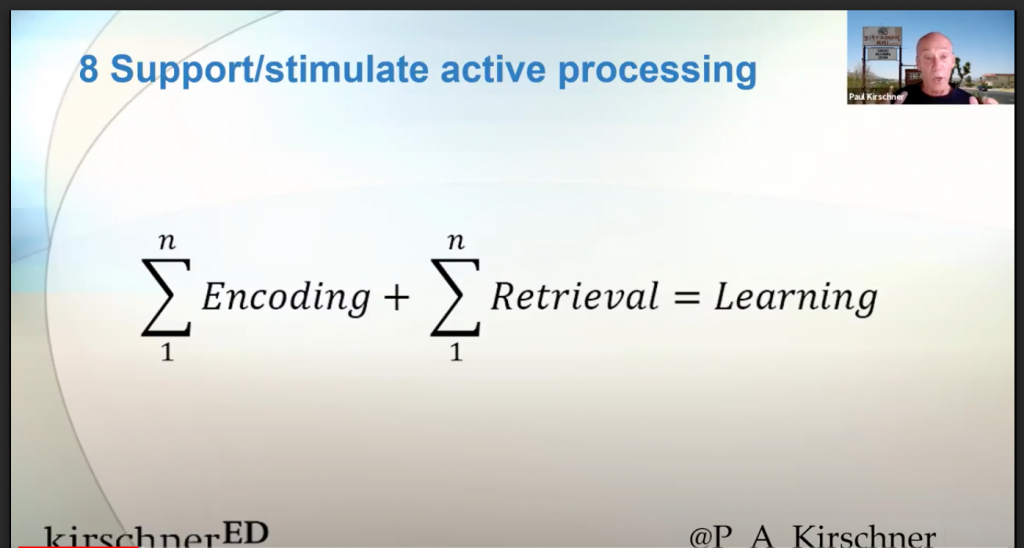Last week I got to read through feedback teachers sent me about a professional development discussion based on the 3 box model/working memory theory. One of the teachers said “In the end, I guess learning boils down to encoding and retrieval, and that’s what I’m going to focus on as I plan lessons for next year.”
I liked this concise summary, so I decided to ask my friends on Twitter whether or not this “equation” for learning makes sense:
I don’t really think this “equation” summarizes everything about learning. Teaching and learning are incredibly complex, involve emotion, motivation, passion, relationships, and dozens of other factors. I love this article Stephen Chew wrote about this complexity: “Learning science and the teachable moment.”
But I’m interested in “simplifications” about learning like this one (even if it is an over-simplification) as ways to start useful discussions. I posted the “equation” on twitter and got this response:
Paul Kirschner’s additions make sense to me: if we think about learning as the sum of encoding and retrieval, it makes more sense to include the idea that learning is the sum of repeated episodes of encoding and retrieval. I may use this version of the “learning equation” to start more conversations with teachers.
[UPDATE: Dr. Kirschner talks about this in a recent ResearchED talk – worth watching! – “Ten Tips for Emergency Remote Teaching” – this screenshot is from about 4:50 in the video)]

But I will also remember to admit that this is all an oversimplification. I also received this reply on twitter.
I appreciate Erica Kleinknecht’s willingness to post several clarifications about limitations she sees in the 3 box/working memory theory (see this twitter thread: https://twitter.com/eko_cogedu/status/1291498005594439680). I’m interested in the ideas she shares about neural processing and learning, and I’m excited to learn more. I find cognitive load theory theory incredibly useful in my thinking about teaching and learning (see “Cognitive load theory: Research that teachers really need to understand”), but I don’t want to fall into the trap of falling in love with a theory and letting that infatuation limit my ability to think about teaching and learning in other ways.
UPDATE:
My buddy Pete sent me this video of Emmanuel Acho talking about rules, relationships, and rebellion. This video got me thinking about another possible “learning equation.”
If you buy the argument that “rules without relationships equals rebellion,” maybe we could express that idea in a useful way in a formula?

And if there is a NEGATIVE scholar/teacher relationship, it might be:
